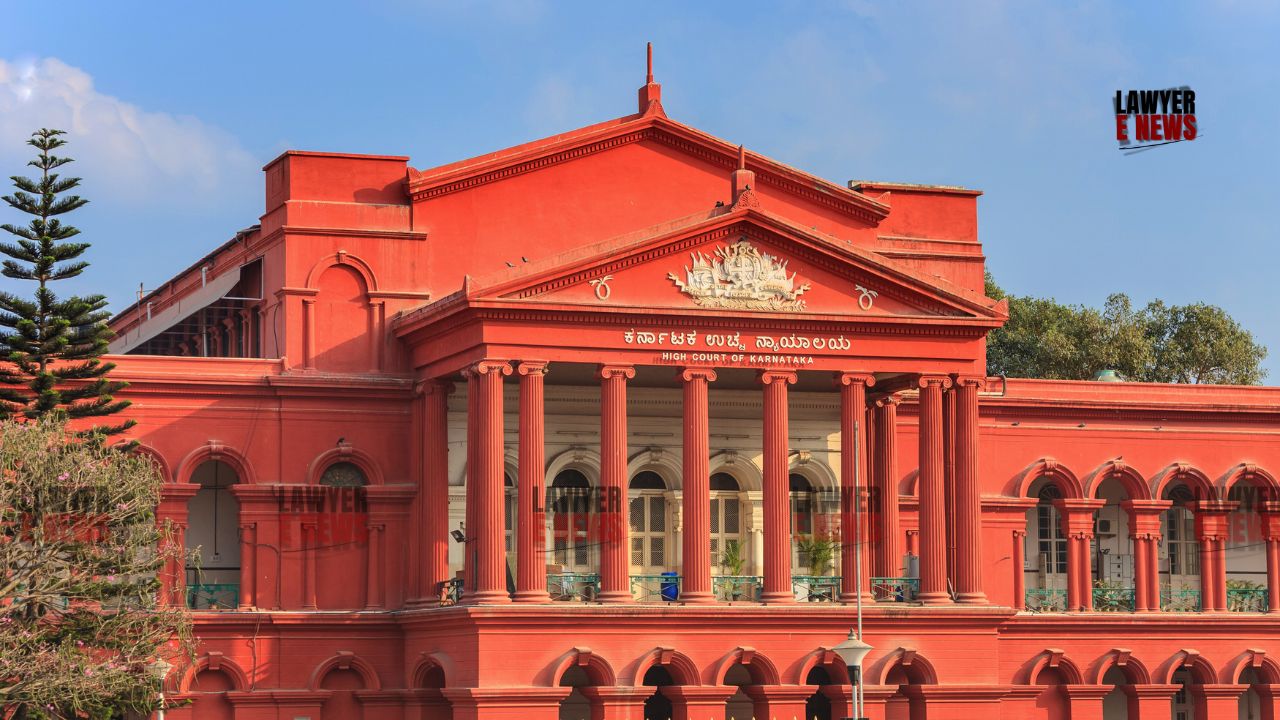-
by Admin
16 February 2026 5:45 AM



Karnataka High Court has upheld the conviction of B.M. Venkatappa, a government storekeeper, under the Prevention of Corruption Act, while reducing the sentence imposed by the trial court. The court ruled that while the conviction for demanding and accepting a bribe was valid, the sentence could be reduced considering the passage of time and Venkatappa's superannuation. This ruling reaffirms the importance of prosecuting public servants for corruption while also allowing leniency in sentencing in certain circumstances.
B.M. Venkatappa, a storekeeper in the Employees State Insurance (ESI) office, was accused of demanding a bribe of ₹1,000 from complainant Krishne Gowda, who required a Botex injection worth ₹9,000 prescribed by doctors at NIMHANS. The injection was to be supplied through the ESI hospital. Venkatappa allegedly demanded the bribe to expedite the process. Krishne Gowda lodged a complaint with the Karnataka Lokayukta, leading to a trap laid by the authorities. Venkatappa was caught red-handed, with the tainted currency recovered from his possession.
In the trial, the Special Lokayukta Court convicted Venkatappa under Sections 7 and 13(2) of the Prevention of Corruption Act, sentencing him to rigorous imprisonment and fines. The accused appealed the judgment, claiming that the bribe was forcibly thrust into his pocket and that there was no official favor he could have performed in relation to the supply of the injection.
The High Court emphasized that the core issue in the case was whether the prosecution had successfully established the demand for and acceptance of the bribe. The court pointed out that the prosecution witnesses, including the complainant (PW.1) and the shadow witness (PW.3), consistently corroborated the sequence of events leading to the trap. The court also noted that the accused failed to provide any convincing explanation for the recovery of the tainted money from his possession.
The court dismissed Venkatappa’s defense that the complainant had forcibly thrust the bribe money into his pocket. It ruled that the presence of the shadow witness during the trap operation and the recovery of the marked currency clearly indicated that the money had been voluntarily accepted.
Citing precedents, the court reiterated that in corruption cases, the prosecution needs to establish demand and acceptance of bribe money beyond a reasonable doubt. Once the prosecution has shown that a public servant has accepted money, the burden shifts to the accused under Section 20 of the Prevention of Corruption Act to disprove the presumption of guilt.
The court underscored the credibility of the prosecution witnesses, especially the complainant and the shadow witness. It noted that both witnesses had withstood cross-examination, and their testimonies were consistent with the prosecution's case. “There may be minor contradictions and omissions, but in a case of this nature, such contradictions do not shake the foundation of the prosecution's case,” the judgment stated.
The court concluded that the prosecution had successfully proven both the demand and acceptance of the bribe, making Venkatappa liable under Sections 7 and 13(2) of the Prevention of Corruption Act. It rejected the defense's contention that the prosecution’s case was weak due to the absence of corroborative witnesses, ruling that the testimony of the complainant, supported by circumstantial evidence, was sufficient.
Justice Ramachandra D. Huddar remarked, "The presence of a shadow witness and the recovery of tainted money from the accused leave no doubt about the acceptance of the bribe. The mere recovery of tainted currency is not enough; however, in this case, the prosecution has clearly established demand and acceptance."
While upholding Venkatappa’s conviction, the High Court showed leniency in sentencing due to the long duration of the legal process and Venkatappa's age. The court reduced the sentence to three months of rigorous imprisonment for the offence under Section 7 and six months for the offence under Section 13(2), directing that the sentences run concurrently. The fines imposed by the trial court remained unchanged.
The judgment sends a clear message about the accountability of public servants under anti-corruption laws, while also demonstrating the court’s discretion in balancing punishment with mitigating factors such as the length of litigation and the personal circumstances of the accused.
Date of Decision: 31st August 2024.
B.M. Venkatappa v. State of Karnataka
